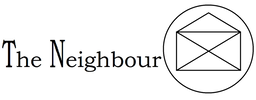|
In behavioral theory there are 2 schools of thought – one is about nudging, the other about teaching. In the latter approach the idea is to teach people a deeper understanding of ‘why’ certain behavior is preferred, appeal to their integrity and common sense and in general show implicit trust. In a nudging approach an institution or government tries to push people into certain behavior by strict rules and regulations, control, surveillance, threats and punishment. That second method is less effective. In Singapore – a ‘fine’ country in which a nudging approach across all society is prevalent – the shortfalls are easy to find: people forget the adage ‘don’t drive and drink’ if they know there are no police checks, littering is widespread in remote areas where there is no control, safe distancing under the Covid-19 measures is only practised if enforced etc. etc. That perhaps explains also the reaction on the recent rise in covid cases (although the number of daily cases can hardly be called a spike) where the discussion is continuosly about what the government should do. In a mature and self controlling environment where people understand the needs, ‘no’ government intervention would be needed: people would work from home, go out less, don’t frequent bars or areas with lots of people, keep a safe distance etc. In short: they’d know what to do. In a rules based approach people follow rules, in a risk based approach people are taught underlying principles and asked to use their common sense. Not only is a risk based approach more effective, it’s also preferred from a respect and trust point of view… only regimes with a level of distrust and disrespect for their residents will prefer a rules based, nudging approach built on command, control and repression. We’d like to hear from you and understand your views. We welcome your ideas, links and feedback. The Neighbour
0 Comments
|
RolfFixer, traveller, writer and founder of TheNeighbour Archives
July 2024
Categories |

 RSS Feed
RSS Feed
